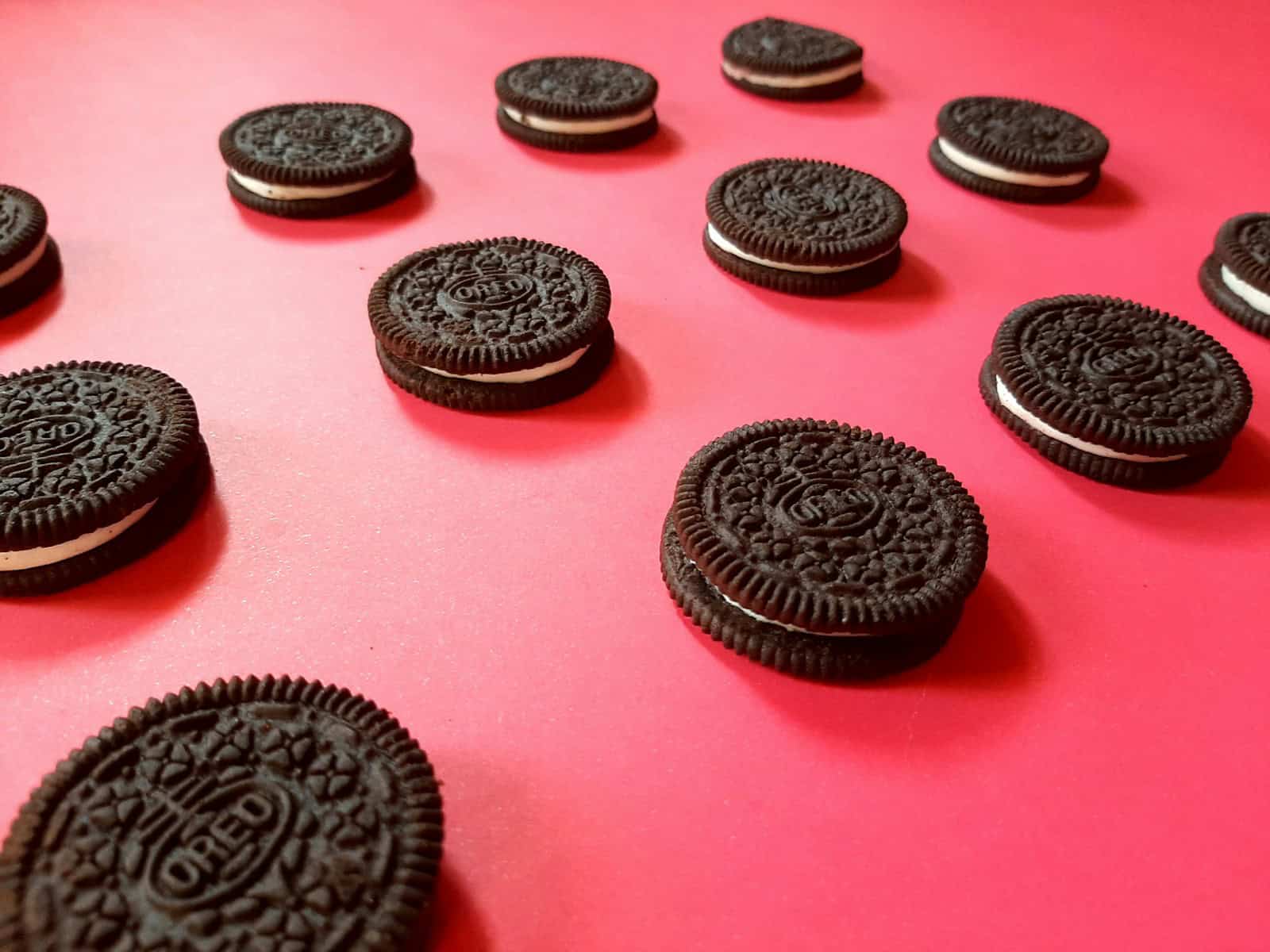Mondelez is known all over the world for cookies and snacks (like the Oreo) and they’ve been using artificial intelligence to innovate its offerings by improving efficiency in recipe creation and product development. This approach marks a significant shift in how food companies engage in innovation and connect with consumers, aiming to create new snacking experiences.
The Future of Snacking: Mondelez’s AI-Driven Innovation
AI-Powered Marketing and Consumer Insights
Mondelez International, the company behind beloved snacks like Oreos, Ritz crackers, Trident, and Cadbury chocolate, is using artificial intelligence to reshape its marketing strategies and gain a deeper understanding of what consumers want. This involves using AI to create personalized ads, analyze trends, and improve marketing campaigns.
Partnerships Driving AI Implementation
Mondelez has teamed up with tech giants Accenture and Publicis Groupe to develop and put its AI plans into action. Accenture provides the strategic direction and implements the AI technology, while Publicis Groupe focuses on the execution and creates the generative AI tools used to make marketing materials like text, images, and short videos.
Beyond Marketing: AI’s Potential in Product Development
While the initial focus is on marketing, Mondelez recognizes that AI can also play a significant role in creating new snacks. By carefully examining consumer data and identifying emerging tastes, AI can help find opportunities for new flavors, different product forms, and even entirely new snack ideas. This could lead to some surprising and tasty innovations in the future.
How AI is Changing the Snack Industry
Mondelez’s use of AI reflects a wider trend in the food and beverage industry. Many companies are now using AI to better understand their customers and create products that appeal to them. This use of technology allows companies to respond quickly to changing trends and stay ahead of the competition.
Mondelez’s AI Initiatives at a Glance
| Area | AI Application |
|---|---|
| Marketing | Creating personalized ads, analyzing consumer data, optimizing campaigns. |
| Product Development | Identifying opportunities for new flavors and product formats. |
| Partners | Accenture (strategy and implementation), Publicis Groupe (execution and generative AI). |
The Human Element Remains Crucial
It’s important to remember that while AI offers powerful tools for analysis and creation, human experts still make the final decisions about new products and flavors. AI provides valuable information and suggestions, but it doesn’t replace human creativity and good judgment. The best results come from a combination of AI insights and human expertise.
Short Summary:
- Mondelez is leveraging AI to innovate snack recipes, potentially reducing time and frequency of tastings.
- The proprietary AI tool enables food scientists to specify key recipe characteristics to optimize snacks.
- CEO Dirk Van de Put emphasizes ongoing brand investment while maintaining recognizable products for consumers.
In recent developments, Mondelez International has embraced artificial intelligence (AI) technology to elevate its culinary creative process and redefine classic snacks such as Oreo and Chips Ahoy. Kevin Wallenstein, who leads the biscuit digital research and development sector at Mondelez, has expressed enthusiasm about how AI can drastically simplify the arduous task of developing new recipes while minimizing the need for extensive in-house tastings that can occur several times a week.
“The point is we get there faster,” Wallenstein said. “The consumer wants the product to taste like X. We’re not stopping iterating until it tastes like X … we’re doing things more efficiently.”
This initiative comes at a time when the competitive landscape for food companies is increasingly fierce, as brands vie for consumer attention in a saturated market filled with diverse calorie offerings. With over twice the amount of recommended daily calories available to Americans, accelerating product innovation remains essential, according to Marion Nestle, a professor emerita at New York University. She believes that incorporating AI into product development could be a game-changer, giving companies like Mondelez a vital edge.
“New types of products and brand offshoots are the way to do that,” Nestle notes. “If AI can get there faster and better, expect to see its role grow.”
The North America R&D center for Mondelez, located in rural New Jersey, functions as the grounds for this technological advancement. Here, food scientists employ the AI tool to tailor recipes by defining specific attributes related to flavor, aroma, and appearance. For instance, they can indicate characteristics such as “buttery” and “in-mouth saltiness” for flavors, while also accounting for elements such as ingredient costs, environmental impact, and nutritional profiles.
Traditionally, determining optimal recipes was an exercise in trial and error. However, the introduction of this machine-learning-based AI tool (developed in collaboration with the software consulting firm Fourkind) allows for much quicker turnaround times. Instead of relying on endless iterations and tastings, now, promising recipe candidates can advance to production trials in a fraction of the time it previously took, enabling a faster path to market.
“We have a critical mass of this tool now for biscuits and baked snacks in North America and for powdered beverages globally,” Wallenstein shared. “It’s been used in over 70 different projects.”
As Mondelez continues to refine its approach using AI, the company remains committed to upholding the essence of their iconic products. For instance, the AI tool does not operate in a vacuum; it incorporates feedback from brand stewards who ensure that any changes align closely with consumer expectations and brand identity. Unexpected suggestions from the AI in its early phases, such as absurdly high ratios of baking soda in cookie recipes, emphasized the need for human oversight in balancing innovation with tradition.
“The brand steward is key,” Wallenstein reaffirmed. “They’d be telling the tool: This is what the essence of an Oreo is.”
Despite these technological advancements, Mondelez maintains that the human palate remains indispensable. While AI is streamlining processes, human tasters will continue to play a vital role in validating the taste of newly developed products before they hit the shelves. Nestle encapsulates this dichotomy well when she notes, “Seems to me you still need human tasters.”
In addition to optimizing existing product lines, Mondelez strives to innovate and expand its offerings through strategic partnerships and investments. Recently, the company has also ventured into generative AI for marketing, launching a new platform in conjunction with Accenture and Publicis Groupe, aimed at enhancing personalized advertising and rapidly producing creative assets like text and images.
“Harnessing the power of gen AI will empower our people to play a proactive role in how our brands show up in the market,” commented Jon Halvorson, senior vice president of global consumer experiences and digital commerce at Mondelez.
The collaboration aims to accelerate the brand’s adaptation to shifting consumer trends while ensuring responsible AI practices are upheld. By focusing not only on efficiency but also on the ethical application of AI, Mondelez hopes to navigate the evolving landscape of marketing more adeptly. Accenture is facilitating this transition by building a digital infrastructure for the growing platform, while Publicis is set to enhance the company’s creative capacities with innovative applications of generative AI.
One notable initiative under this strategy, SnackFutures Ventures—Mondelez’s corporate venture capital arm—recently acquired a minority stake in Urban Legend, a UK-based “better-for-you” fresh doughnut and pastry brand. The partnership aligns with Mondelez’s commitment to exploring healthier, indulgent snack options while leveraging Urban Legend’s unique air-frying technology that significantly reduces sugar, fat, and calories compared to traditional doughnut manufacturing.
“We’re excited about the brand’s growth potential, focus on ‘mindful indulgence,’ and opportunity to help Mondelēz build capability in the fast-growing ‘better-for-you’ fresh bakery space,” stated Richie Gray, global head of SnackFutures Ventures.
Mondelez is focusing on a multi-faceted strategy that combines AI-driven innovation and strategic partnerships to maintain its leadership in the snack industry. The company aims to redefine classic snacks and create new options that prioritize consumer preferences. By embracing the synergy of human creativity and artificial intelligence, Mondelez is paving a path that balances tradition with innovation, ensuring its products remain appealing and relevant to modern consumers. This approach reflects both the company’s heritage and its future potential.







